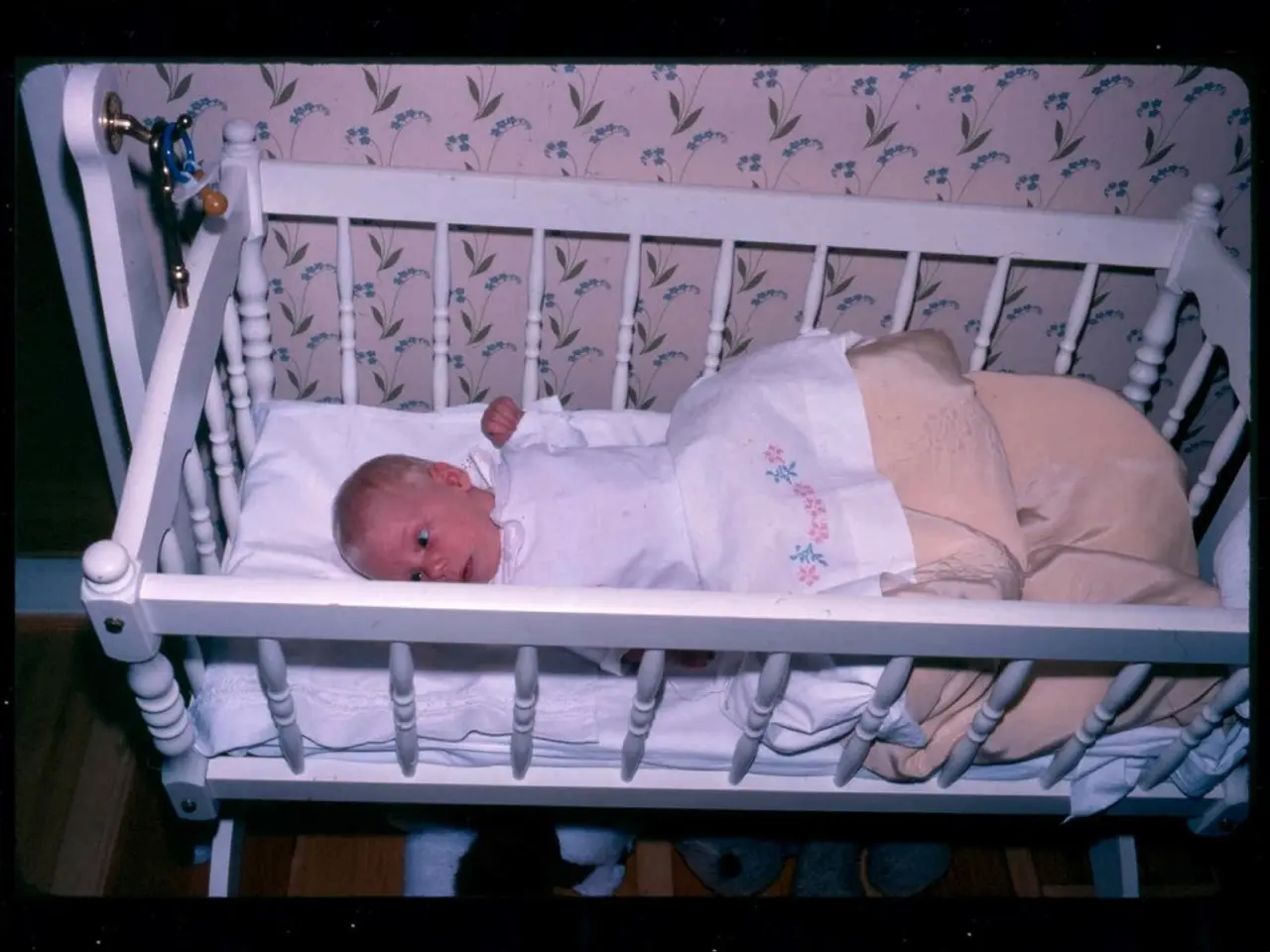Cardiac Ultrasound for Fetuses
A fetal echocardiogram is a crucial diagnostic tool used to evaluate the heart of an unborn baby for potential problems during pregnancy. This non-invasive test uses ultrasonic sound waves to provide detailed images of the baby's heart, helping healthcare providers to detect any heart defects early.
The most common form of ultrasound imaging during a fetal echocardiogram is abdominal echocardiography. However, in cases of suspected issues early in fetal development, a transvaginal probe may be used.
The test is typically performed between 18 to 24 weeks of pregnancy, though it can be done earlier or later depending on the circumstances. If the results of a fetal echo are normal, the patient is discharged and asked to return if later prenatal tests require it. In cases where a heart defect is detected, a consultation with a pediatric cardiologist may be necessary for a detailed diagnosis and counselling.
Regular obstetric scanning during prenatal check-ups may not be sufficient for women who have risk factors for Congenital Heart Diseases (CHDs). These women may be asked to take a detailed fetal echocardiogram. Common risk factors that may lead a healthcare provider to recommend a fetal echocardiogram during pregnancy include:
- Fetal anomalies detected on routine ultrasound, suggesting possible heart problems.
- Family history of congenital heart defects or hereditary heart conditions revealed by genetic testing in either parent.
- Maternal health conditions such as diabetes (pre-gestational or gestational), autoimmune disorders like lupus or Sjogren’s syndrome, thyroid diseases, advanced maternal age (typically >35 years), exposure to certain medications during pregnancy, conception by IVF (in vitro fertilization), which is associated with increased risk of congenital heart defects.
- Genetic or chromosomal disorders suspected in the fetus, such as Down syndrome or other abnormalities identified through screening programs or ultrasound.
- Maternal weight factors, including higher body mass index or excessive gestational weight gain, which may affect ultrasound visibility and prompt more detailed examination.
- Other risks such as consanguineous marriage, unplanned pregnancy with no or improper antenatal care, nutritional deficiencies, and certain non-communicable diseases (e.g., diabetes).
Early diagnosis of fetal heart defects allows for scheduling the birth of the baby with an attending neonatal unit and, if necessary, a surgical team. If the images from a 2-D echocardiography are not clear, additional tests may include foetal MRI, high level foetal ultrasound, amniocentesis, consultations with Geneticists and genetic counsellors, and consultations with a perinatologist.
In summary, a fetal echocardiogram is a vital tool in the early detection and management of fetal heart defects. It is recommended when there is a known or suspected increased risk of fetal heart defects due to maternal health conditions, family genetic history, abnormalities seen on screening ultrasounds, or other factors influencing fetal heart development and visualization.
- Parenting a baby with a heart defect may require specialized attention, as chronic diseases like Congenital Heart Diseases (CHDs) might necessitate therapies and treatments different from regular health and wellness practices.
- Science plays a significant role in the advancements of medical-conditions management, with new treatments and therapies continually emerging for chronic diseases, respiratory conditions, digestive health, eye-health, hearing, skin-care, and even neurological disorders.
- Prenatal care becomes more crucial for women with risk factors associated with potential heart defects in their unborn babies, which could result from factors like genetic disorders, maternal health conditions, or family history of hereditary heart conditions.
- In some cases, the presence of certain medical-conditions in a mother, such as diabetes or autoimmune disorders like lupus or Sjogren’s syndrome, might necessitate a more detailed fetal echocardiogram to assess the baby's heart health.
- Maternal conditions that could affect the heart development of the unborn baby include chromosomal disorders like Down syndrome, advanced maternal age, exposure to certain medications, conception by IVF, and other factors that might influence fetal heart development and visualization.
- The use of cbd, a non-psychoactive compound found in cannabis, has been studied in recent years for its potential health benefits, although its effects on fetal development are not yet fully understood.
- Women who have high body mass index (BMI) or excessive gestational weight gain may require a detailed fetal echocardiogram to ensure proper visualization of the baby's heart for early detection of possible heart defects.
- Beyond the initial fetal echocardiogram, women with risk factors for Congenital Heart Diseases may need regular monitoring and further testing, such as foetal MRI, high-level foetal ultrasound, amniocentesis, consultations with Geneticists and genetic counsellors, and consultations with a perinatologist.
- Women with chronic diseases like diabetes or autoimmune disorders may require close monitoring during pregnancy not only for the baby's heart health but also for their own health and mental well-being, given that it can be challenging to manage these conditions during this time.
- In cases where a fetal heart defect is detected, interventions like scheduling the birth of the baby with an attending neonatal unit and, if necessary, a surgical team, can help ensure the best possible care for both the mother and the baby from the start.
- Medicare coverage may vary for different prenatal tests and additional diagnostics, so it is important for pregnant women to discuss any concerns with their healthcare providers and insurance providers to fully understand the scope of their coverage and financial obligations.




